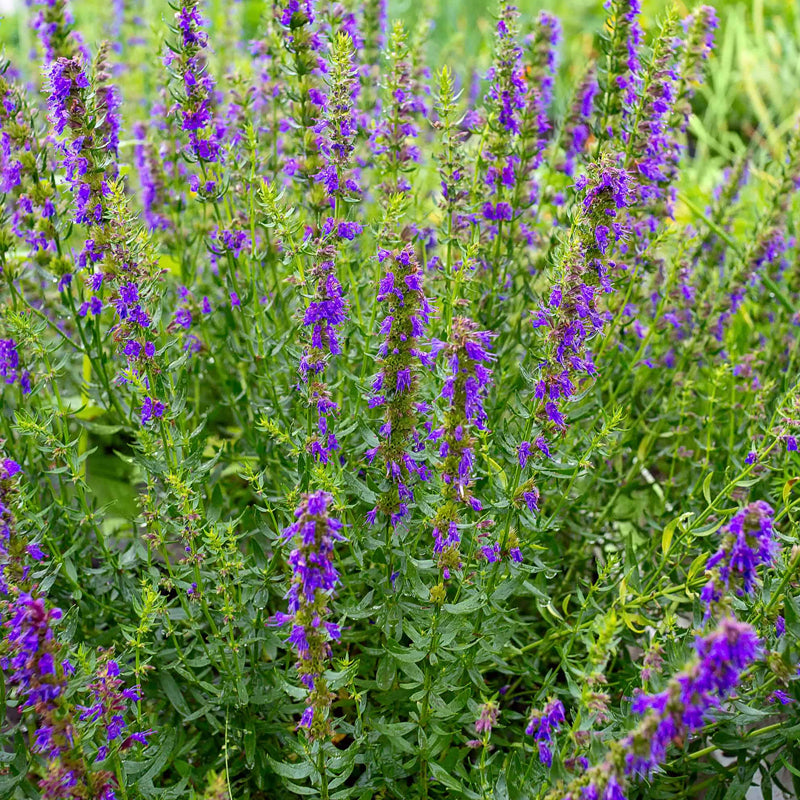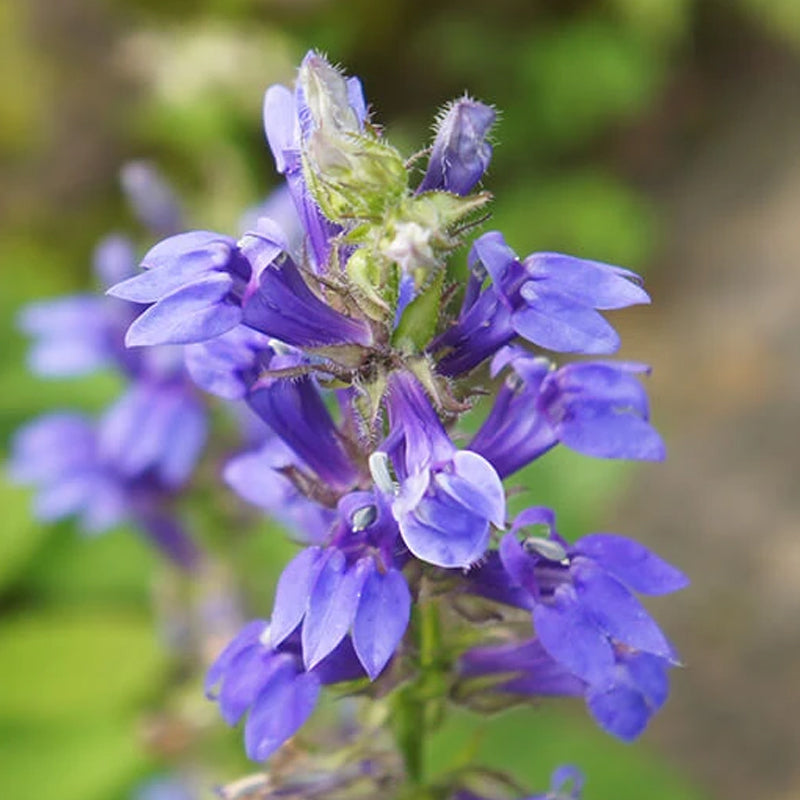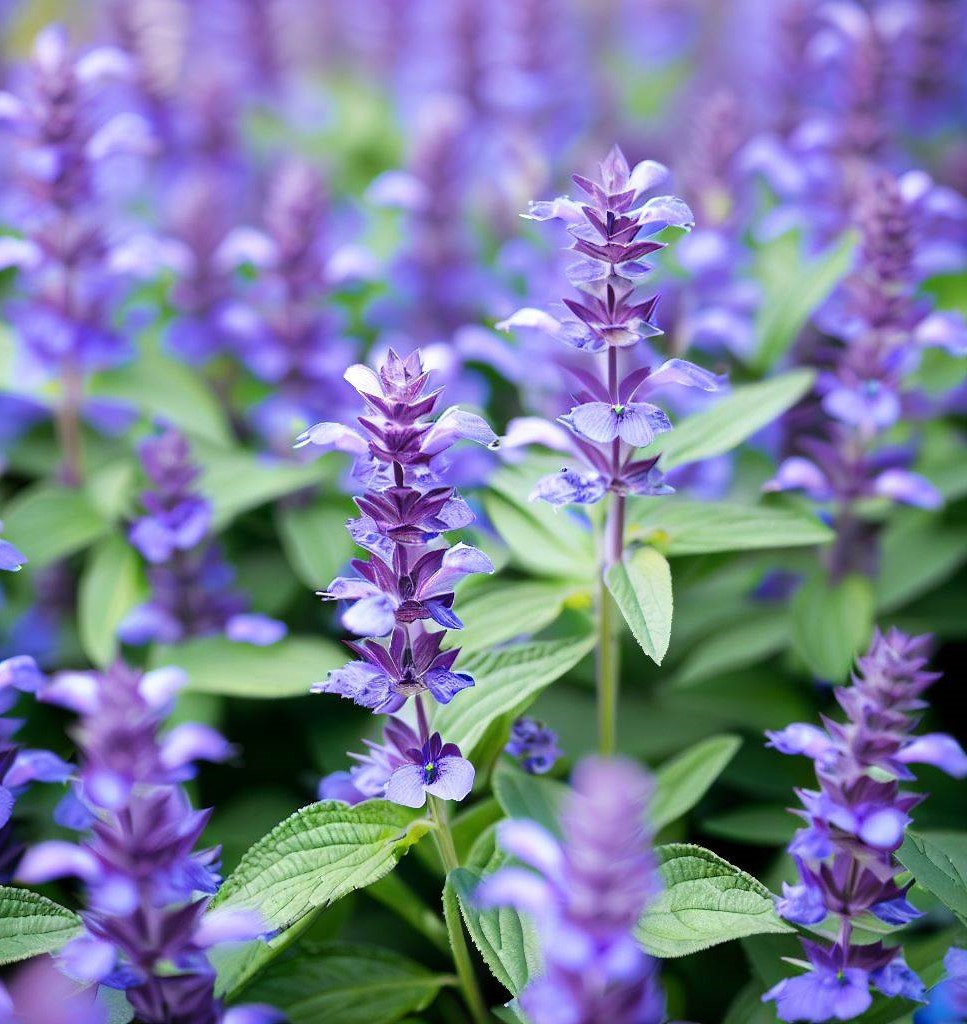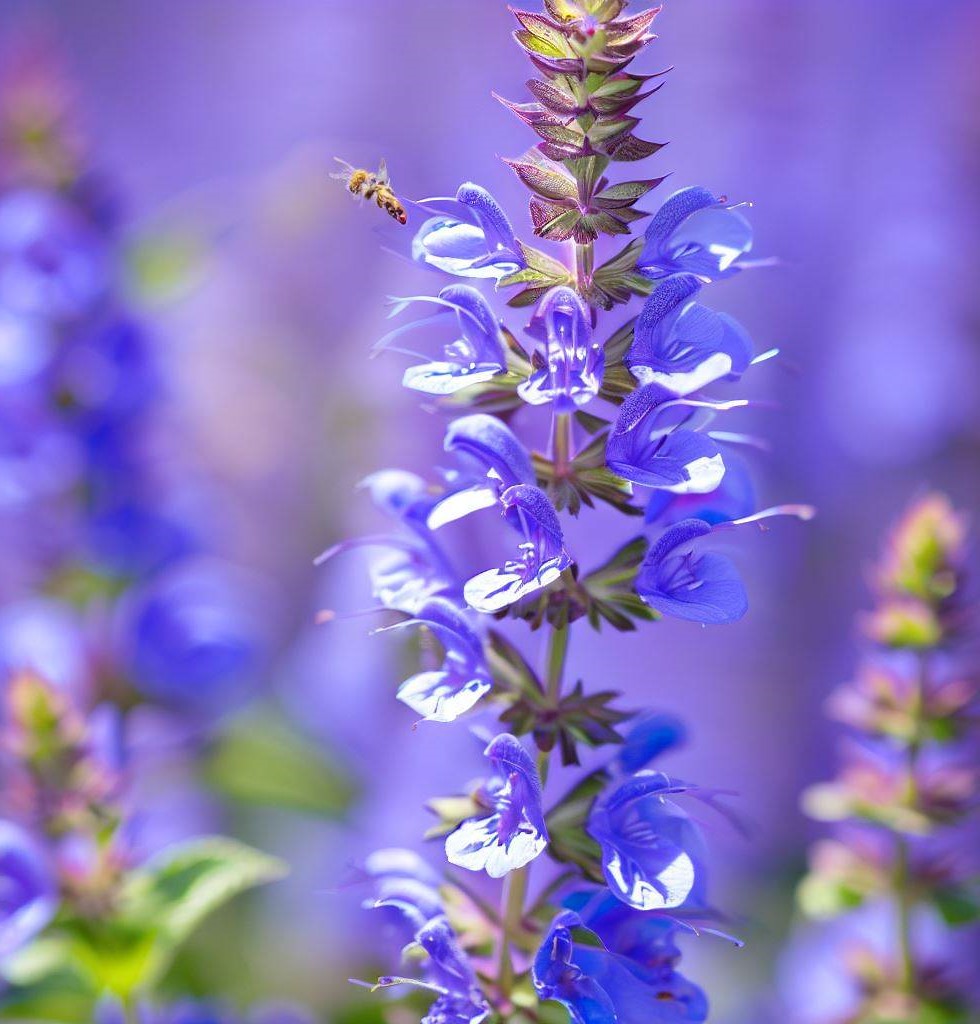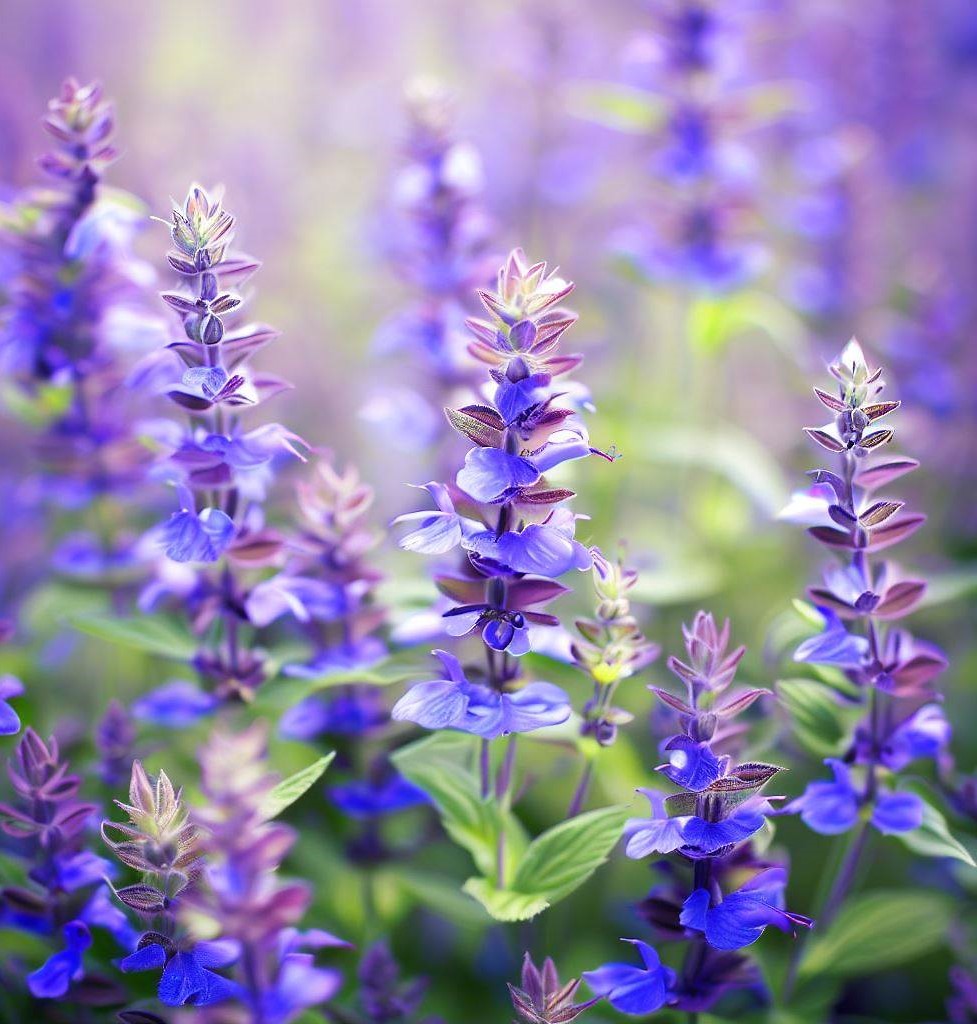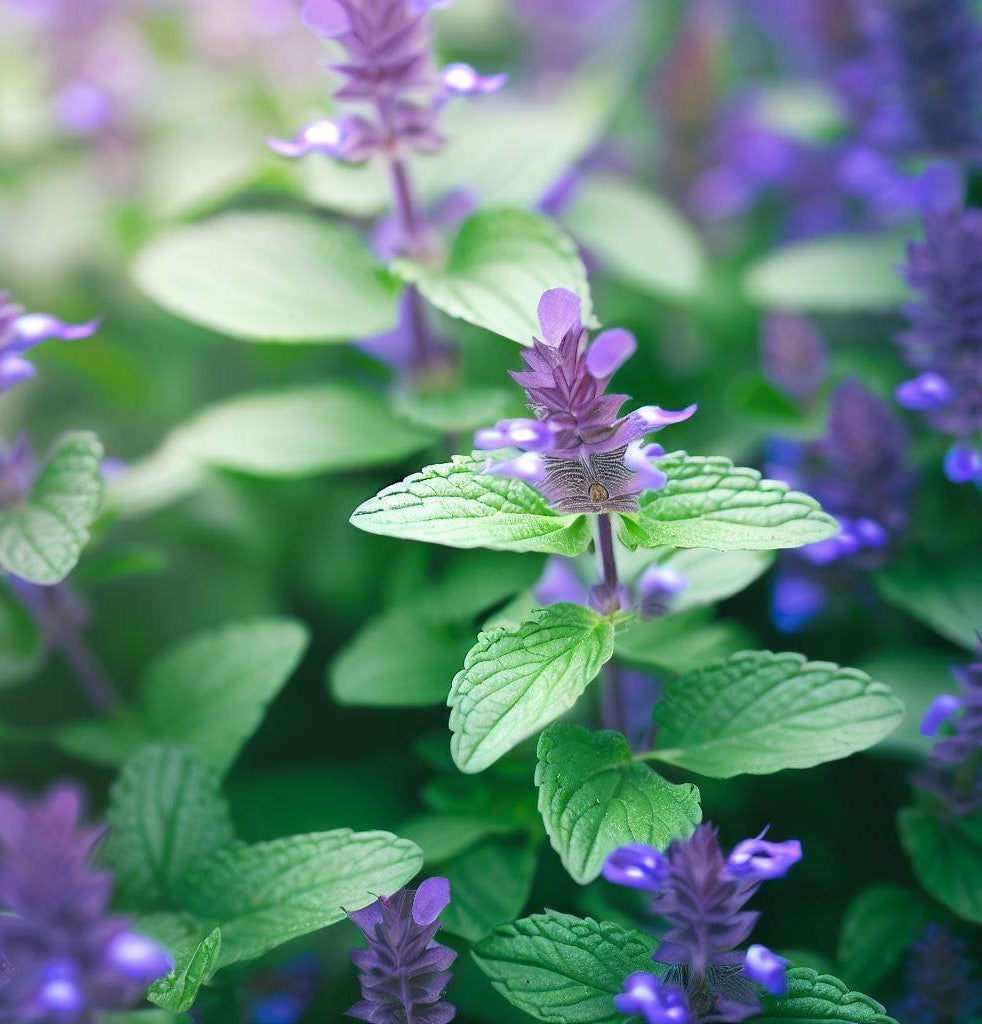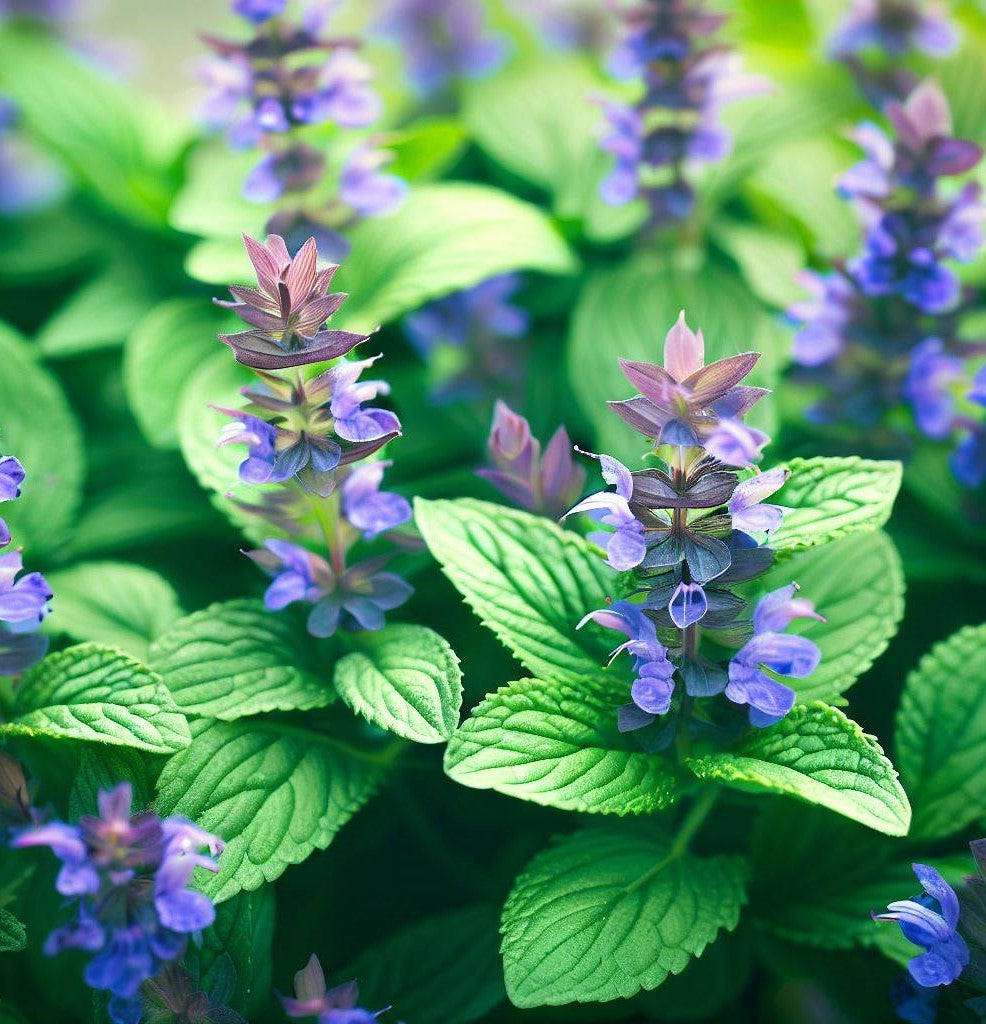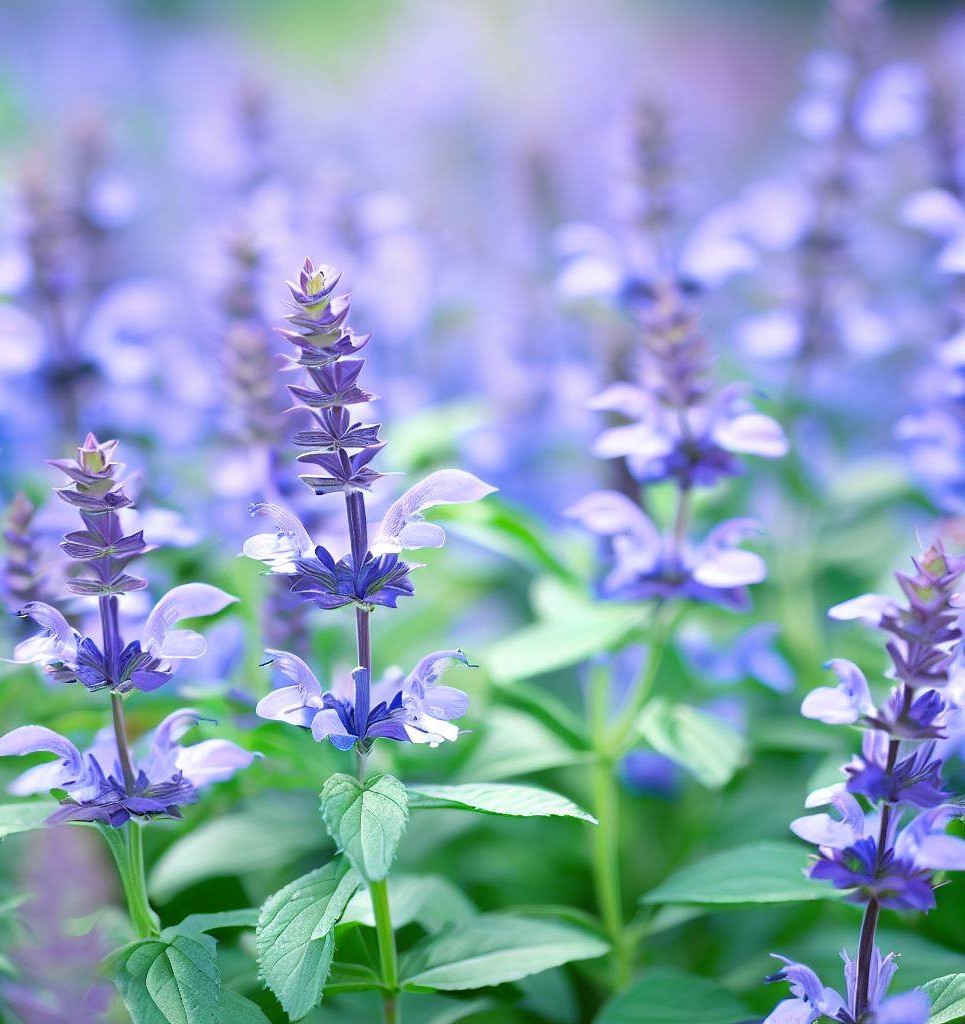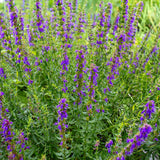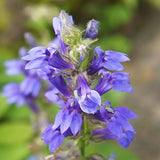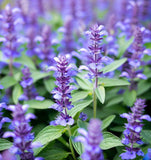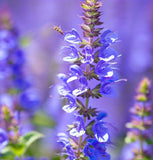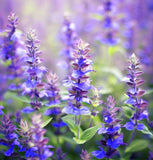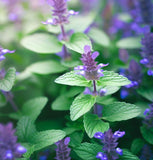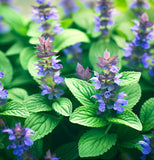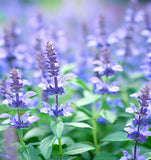Hyssop (Hyssopus officinalis)
Hyssop (Hyssopus officinalis) is a perennial herb that belongs to the Lamiaceae family. It is native to the Mediterranean region and has been cultivated and used for various purposes for centuries. Hyssop is known for its aromatic leaves and flowers, which are utilized in culinary, medicinal, and spiritual practices.
Appearance: Hyssop is a compact herb that grows up to 2 feet (60 centimeters) in height. It has slender, woody stems with small, narrow, and lance-shaped leaves. The flowers are clustered at the top of the stems and range in color from blue to violet or pink.
Culinary Uses: Hyssop leaves have a strong, minty flavor with a hint of bitterness. They are used sparingly as a culinary herb in various dishes. The leaves can be added to soups, stews, sauces, and marinades to impart a distinctive taste. Additionally, they can be used to flavor herbal teas and liqueurs.
Medicinal Benefits: Hyssop has a long history of use in traditional medicine due to its potential medicinal properties. It is believed to possess expectorant, antiseptic, antiviral, and anti-inflammatory properties. Hyssop tea is often used to relieve respiratory conditions like coughs, congestion, and bronchitis. It has also been used to support digestion and soothe gastrointestinal discomfort.
Spiritual and Symbolic Uses: Hyssop has played a significant role in various spiritual and symbolic practices throughout history. It is mentioned in religious texts like the Bible and has been associated with purification, cleansing, and protection rituals. In some traditions, hyssop is burned as incense or used in ritual baths to promote spiritual purification and remove negative energy.
Cultivation: Hyssop is a relatively easy herb to cultivate. It prefers well-drained soil and full sun exposure but can tolerate partial shade. The plant requires regular watering and can be grown from seeds or cuttings. It is a hardy plant that can withstand drought conditions and attracts pollinators like bees and butterflies to the garden.
Precautions: While hyssop is generally safe when used in culinary amounts, it contains certain compounds that may be toxic in large quantities or concentrated forms. It is not recommended for use during pregnancy or breastfeeding. As with any herbal remedy, it's advisable to consult with a healthcare professional before using hyssop for medicinal purposes, especially if you have specific health conditions or are taking medications.
Botanical name : Hyssopus officinalis
Common name : Hyssop
Life cycle : Perennial in Zones 3-9
Days to maturity : 90-120
Light requirement : Full sun
Planting time : Spring/Summer
Sowing method : Direct sow
Planting depth : ¼”
Plant spacing : 8-10"
Ships : Year-round
Average seed per ounce : Approx. 40,000

